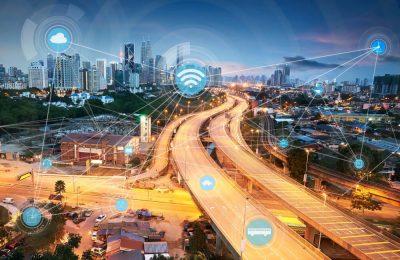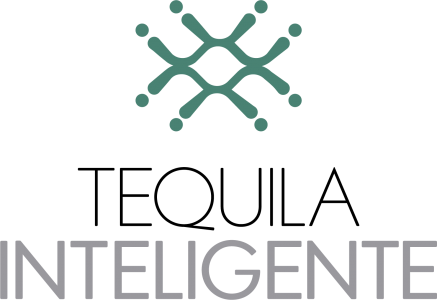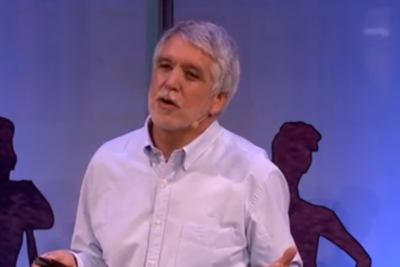
Ciudades inteligentes requieren infraestructura inteligente.


Por Sergio Severo, President & General Manager, Latin America and Caribbean at Hitachi Vantara.
Para 2050, el 68% de las personas en el mundo vivirán en ciudades, como se muestra en la Revisión de Perspectivas de Urbanización Mundial 2018 producida por la División de Población del Departamento de Asuntos Económicos y Sociales de las Naciones Unidas (UN DESA). Con la población urbana más del doble de su tamaño actual, las ciudades deberán adaptarse y preparar su infraestructura para el nuevo escenario.
Hacer que las ciudades adopten soluciones inteligentes será clave después de este aumento de la densidad de población, especialmente en las áreas metropolitanas. Pero requerirá una profunda transformación, ya que no se trata solo de instalar interfaces digitales en la infraestructura tradicional.
En un artículo de 2017 titulado “A City is Not a Computer”, Shannon Mattern, profesora de antropología en The New School en la ciudad de Nueva York, fue precisa al afirmar que la inteligencia urbana es más que el procesamiento de información. «¿Cómo deberíamos medir la efectividad de una ciudad, cuáles son sus KPI?», Preguntó, completando que casi no se mencionaba a los diseñadores, planificadores y académicos urbanos que han estado haciendo las grandes preguntas durante siglos: ¿cómo funcionan las ciudades? función, y ¿cómo pueden funcionar mejor?
He estado usando la expresión «powering good» por un tiempo. Como expliqué en mi artículo “Technology beyond the earth’s atmosphere”, el buen poder incluye una diversidad de negocios en varios campos, como transporte, agua, seguridad, fabricación, inteligencia artificial (IA), Internet de las cosas (IoT), desarrollo urbano , entre otros. Cuando se trata de infraestructura, requiere satisfacer la demanda acelerada de viviendas asequibles, sistemas de transporte bien conectados y otra infraestructura y servicios básicos.
Sin embargo, un desafío se basa en cómo planificar las ciudades de una manera más inteligente, haciéndolas inclusivas, saludables, resistentes y sostenibles. Debe tener en cuenta que los proyectos urbanos, edificios, carreteras, casas, todo está construido para durar décadas. Cómo adoptar las nuevas tecnologías e integrarlas en las infraestructuras urbanas es una pregunta que toda la sociedad debería plantearse. Además, deberíamos preguntarnos cómo es la ciudad donde nos gustaría pasar el resto de nuestras vidas.
Para acomodar la cantidad esperada de personas y una población de alta densidad, las ciudades deberían aumentar el uso de dispositivos sensores. IoT juega un papel muy importante en las ciudades inteligentes, ya que el análisis de la enorme cantidad de datos recopilados conducirá a mejores soluciones para resolver los problemas de las ciudades y garantizar que la infraestructura y los activos de las ciudades inteligentes estén optimizados para la eficiencia, la sostenibilidad y la seguridad.
Con el aumento de ciudadanos que viven en áreas urbanas, la infraestructura se verá presionada una vez que los residentes sigan exigiendo una mejor calidad de vida y a un costo sostenible. En el informe Ciudades inteligentes: soluciones digitales para un futuro más habitable (Smart cities: Digital solutions for a more livable future), McKinsey Global Institute (MGI) analiza cómo docenas de aplicaciones digitales abordan un futuro más habitable. Se encuentra que las ciudades pueden usar tecnologías inteligentes para mejorar algunos indicadores clave de calidad de vida en un 10% a 30%.
El informe señala que las ciudades inteligentes cambian la economía de la infraestructura y crean espacio para asociaciones y participación del sector privado. Establece que la inversión en infraestructura una vez encerró a las ciudades en planes intensivos en capital y extremadamente a largo plazo, pero ahora hay una combinación correcta de construcción tradicional y soluciones inteligentes. Juntos, pueden responder de manera más dinámica a cómo está cambiando la demanda.
Realmente creo que la infraestructura inteligente puede encontrar mejores alternativas para los problemas urbanos, y espero ver un aumento en las soluciones digitales para resolver los desafíos actuales y futuros y responder a las necesidades de crecimiento de la población.
Versión Inglés.
By 2050, 68% of the people in the world will be living in cities, as shown in the 2018 Revision of World Urbanization Prospects produced by the Population Division of the United Nations Department of Economic and Social Affairs (UN DESA). With the urban population more than doubling its current size, cities will need to adapt and to prepare its infrastructure for the new scenario.
Getting cities to embrace smart solutions will be key following this population density increase, especially in metropolitan areas. But it will require some profound transformation as is not just about installing digital interfaces in traditional infrastructure.
In a 2017-article entitled “A City is Not a Computer”, Shannon Mattern, a professor of anthropology at The New School in New York City, was precise when stating that urban intelligence is more than information processing. “How should we measure the effectiveness of a city, what are its KPIs?”, she asked, completing that there was hardly any mention of the urban designers, planners, and scholars who have been asking the big questions for centuries: How do cities function, and how can they function better?
I’ve been using the expression “powering good” for a while. As I explained in my article “Technology beyond the earth’s atmosphere”, powering good includes a diversity of business in various fields, such as transportation, water, security, manufacturing, artificial intelligence (AI), Internet of things (IoT), urban development, among others. When it comes to infrastructure, it requires meeting accelerated demand for affordable housing, well-connected transport systems, and other infrastructure and basic services.
However, one challenge relies on how to plan cities in a smarter way, making them inclusive, healthy, resilient, and sustainable. It should take into account that urban projects, buildings, roads, houses, everything is built to last decades. How to embrace new technologies and to embed them in urban infrastructures is a question that the whole society should ask. Also, we should be wondering how is the city where we’d like to spend the rest of our lives?
To accommodate the expected amount of people and a high density population, cities should increase the usage of sensor devices. IoT plays a very important role on smart cities, as the analysis of the enormous amount of collected data will lead to better solutions to solve cities problems and ensure that smart city infrastructure and assets are optimized for efficiency, sustainability and safety.
With the increase of citizens living in urban areas, infrastructure will be pressured once residents will keep demanding a better quality of life and at a sustainable cost. In the report Smart cities: Digital solutions for a more livable future, McKinsey Global Institute (MGI) analyzes how dozens of digital applications address a more livable future. It finds that cities can use smart technologies to improve some key quality-of-life indicators by 10% to 30%.
The report notes that smart cities change the economics of infrastructure and create room for partnerships and private-sector participation. It states that infrastructure investment once locked cities into capital-intensive and extremely long-term plans, but now there’s a right combination of traditional construction and smart solutions. Together, they can respond more dynamically to how demand is changing.
I truly believe that smart infrastructure can find better alternatives for urban problems, and I hope to see an increase in digital solutions for solving current and future challenges while responding to population growth needs.
 Sergio Severo.
Sergio Severo.
Vicepresidente y Gerente General para Latinoamérica y el Caribe de Hitachi Vantara. Miami, USA. Management: Executive with deep planning and execution expertise, Multi-billion Revenue and P&L, entrepreneurship mindset, performance management proven capabilities and success. Solid values and motivational skills, multicultural and multi-geographic background. Spanish, English and Portuguese. Solid financial, engineering and management background. Presentations & media relationship. Customer and Value Driven: C-level customer relationship, Sales, Marketing, Products, Channels, Integrators and ISPs experience. Business Development and Solution selling expertise. Transformations and Change Management Expertise: Corporate and HQ experience, Acquisitions, Mergers, New business models/plans. Vendors and outsourcers management. Success developing teams while increasing efficiency and productivity.














